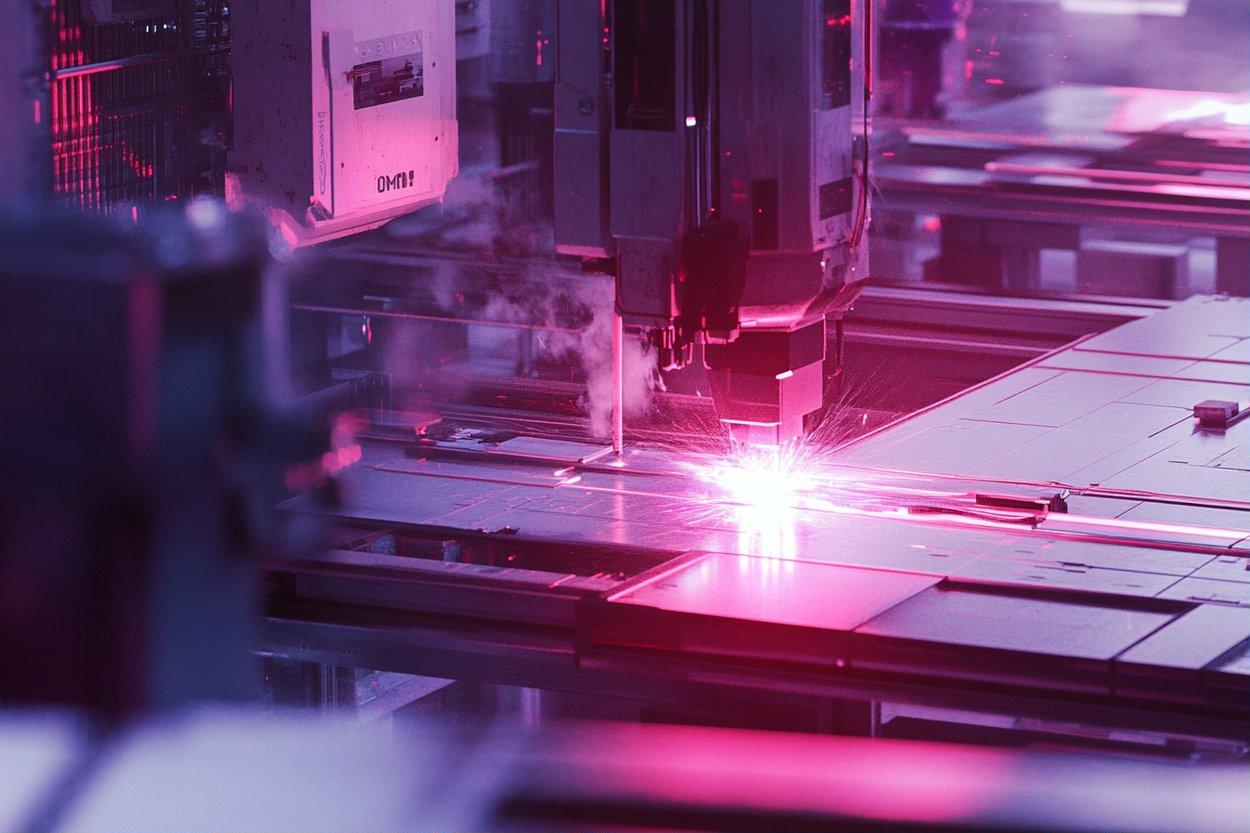Portable Laser Welding Machines: A Comprehensive Guide
Portable laser welding machines represent a significant advancement in welding technology, offering precision, efficiency, and mobility that traditional welding methods cannot match. These compact devices utilize concentrated laser beams to join metals with minimal heat-affected zones, making them increasingly popular across industries from automotive repair to jewelry making.

Portable laser welding machines have revolutionized the welding industry by combining high-precision technology with mobility and ease of use. Unlike traditional welding methods, laser welding utilizes focused light energy to create strong, clean welds with minimal heat distortion. As industries demand greater flexibility and precision in their manufacturing processes, these portable units have emerged as valuable tools for professionals across various sectors. The technology continues to evolve, becoming more accessible and versatile while maintaining the exceptional quality that laser welding is known for.
What Are Portable Laser Welding Machines?
Portable laser welding machines are compact welding devices that use concentrated laser beams to join metal pieces together. Unlike conventional welding equipment, these machines focus high-energy light beams onto a small area, creating precise, clean welds with minimal heat-affected zones. The core components typically include a laser generator, a fiber optic cable for beam delivery, cooling systems, and control interfaces housed in a mobile unit.
Modern portable laser welders operate using either fiber laser or Nd:YAG (neodymium-doped yttrium aluminum garnet) technology, with fiber lasers becoming increasingly common due to their efficiency and reliability. These machines generate power ranging from 300W to 2000W for handheld models, sufficient for welding materials from thin sheets to moderately thick metal components. The portability factor comes from their relatively lightweight design, often mounted on wheeled carts or even configured as truly handheld devices weighing as little as 25-45 pounds.
Benefits and Applications of Portable Laser Welding
The advantages of portable laser welding extend across numerous industries. First, these machines offer exceptional precision, producing narrow, deep welds with minimal thermal distortion. This precision is particularly valuable when working with thin materials or heat-sensitive components. Second, the mobility factor allows welders to bring the equipment to the workpiece rather than vice versa, significantly improving workflow efficiency in manufacturing environments.
In the automotive industry, portable laser welders excel at repair work, especially for body panels and intricate components. The jewelry industry benefits from the clean, precise welds that require minimal finishing. Manufacturing facilities use these machines for quick repairs and modifications to production equipment, reducing downtime. Additionally, portable laser welding has found applications in medical device manufacturing, aerospace components, and even art restoration, where precision and minimal material distortion are paramount.
Another key benefit is the improved worker safety compared to traditional welding methods. Laser welding produces fewer fumes and spatter, and the controlled nature of the process reduces burn risks associated with conventional arc welding techniques.
How to Find Portable Laser Welding Machines
Finding the right portable laser welding machine requires careful consideration of several factors. Start by assessing your specific application requirements, including the types of metals you’ll be welding, typical material thickness, and required mobility level. Research manufacturers with established reputations in laser technology, as quality and reliability vary significantly among brands.
Industry trade shows and exhibitions offer excellent opportunities to see various models in action and speak directly with manufacturers. Online industrial equipment marketplaces and specialized welding equipment suppliers often provide detailed specifications and user reviews. Consider consulting with industry peers who have experience with laser welding to gain insights into real-world performance and reliability.
When evaluating options, pay close attention to power specifications, cooling systems, and available accessories. Most reputable manufacturers offer demonstration sessions where you can test the equipment on your specific materials before making a purchase decision. Additionally, investigate the availability of training programs, as proper operation is crucial for both safety and optimal welding results.
Where to Buy Portable Laser Welding Machines
Portable laser welding machines are available through multiple purchasing channels. Authorized equipment distributors specializing in industrial machinery offer personalized service and often provide installation and training support. Direct purchases from manufacturers can sometimes yield better pricing and ensure you’re receiving genuine equipment with full warranty coverage.
Online industrial equipment marketplaces have expanded their offerings of laser welding technology, though buyers should verify seller credentials and equipment specifications carefully. For businesses with limited capital budgets, leasing options and certified refurbished machines present cost-effective alternatives to new equipment purchases.
When selecting a supplier, consider factors beyond just the initial purchase price. Evaluate the availability of local technical support, spare parts inventory, and service response times. Established suppliers typically offer comprehensive packages that include installation, operator training, and preventive maintenance programs. Some suppliers specialize in specific industries, providing valuable application-specific expertise that can help optimize your welding processes.
Cost Considerations for Portable Laser Welding Machines
The investment in portable laser welding technology varies considerably based on power capacity, features, and brand reputation. Entry-level handheld models typically range from $30,000 to $50,000, while more powerful systems with advanced features can exceed $100,000. Beyond the initial purchase price, buyers should factor in operational costs including electricity consumption, maintenance requirements, and consumable parts such as protective lenses and shielding gas.
| Machine Type | Power Range | Typical Price Range | Key Applications |
|---|---|---|---|
| Handheld Fiber Laser | 300W-1000W | $30,000-$65,000 | Thin sheet metal, jewelry, small repairs |
| Cart-Mounted Fiber Laser | 1000W-2000W | $65,000-$120,000 | Automotive, general manufacturing |
| High-Power Portable System | 2000W+ | $120,000-$200,000 | Heavy industrial, thick materials |
| Refurbished Units | Varies | $20,000-$80,000 | Various applications |
Prices, rates, or cost estimates mentioned in this article are based on the latest available information but may change over time. Independent research is advised before making financial decisions.
When calculating return on investment, consider productivity improvements through faster welding speeds, reduced post-weld finishing, and decreased material waste. Many users report significant cost savings through improved precision and reduced rework rates. Maintenance costs typically include periodic calibration, cleaning of optical components, and replacement of consumables like protective lenses.
For businesses with occasional laser welding needs, contract welding services or equipment rental options may provide more economical alternatives to outright purchase. Some manufacturers also offer financing programs specifically designed for industrial equipment acquisition, potentially easing the initial capital expenditure.
The portable laser welding machine market continues to evolve with technological advancements driving both improved capabilities and gradually decreasing costs. As adoption increases across industries, these sophisticated tools are becoming more accessible to smaller operations and specialized workshops, expanding their application beyond traditional industrial settings. Whether for precision manufacturing, repair operations, or custom fabrication, portable laser welding machines represent a significant but potentially transformative investment for many metalworking businesses.




